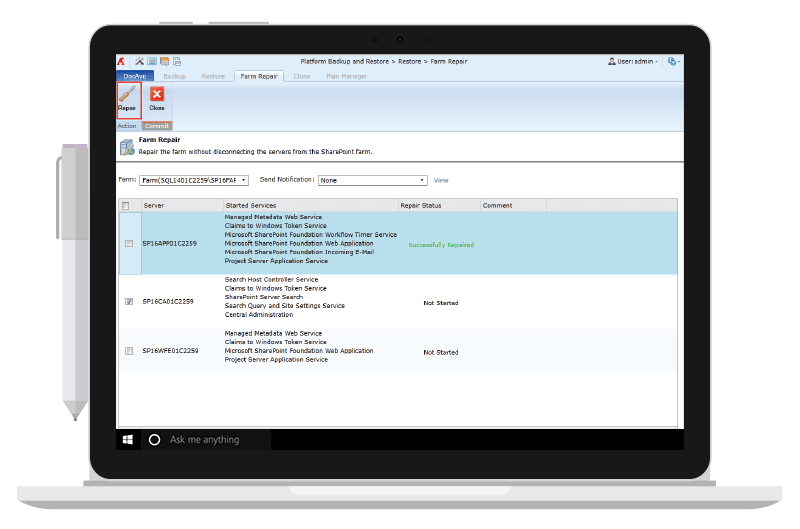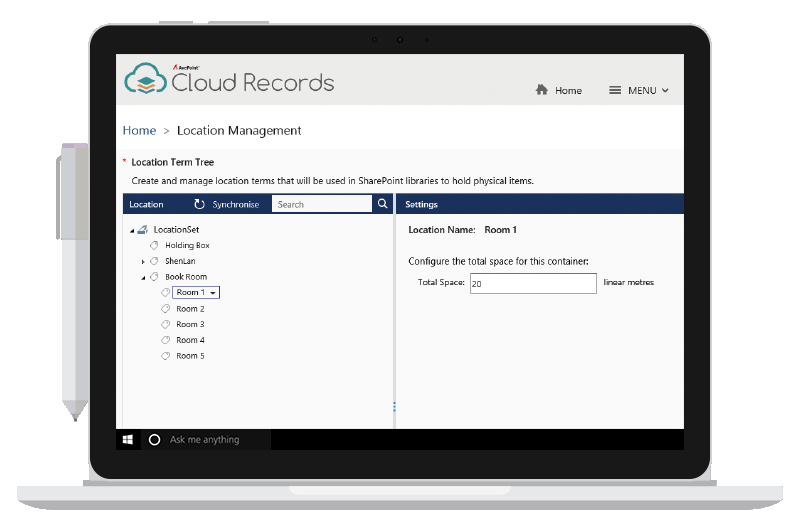
Protect as you deploy: operational governance with AvePoint

All organisations have valuable data. Personally identifiable data on customers, intellectual property, financial records and other critical business information all must be protected from misuse.
Protecting this valuable data is not only important for organisations to be competitive, but also because this data is often subject to government regulations that carry hefty fines for non-compliance.
To mitigate these risks, organisations have developed operational IT governance policies to help guide user behavior and ensure IT applications, and the data held within them, are protected and enabling business success.
A successful policy framework will have chains of responsibility, authority, and communication with measurement and control mechanisms in place. The challenge most organisations are facing is, once the policies have been created, how do you enforce them across the workforce?
Today, most organisations are leveraging SharePoint or Office 365 in an on-premise, cloud or hybrid environment as their enterprise content management system to store and collaborate on their content. In fact, by 2021, Gartner forecasts that more than 70 percent of businesses will be substantially provisioned with cloud office capabilities.
While Office 365 and SharePoint offer rich features to empower users and enable business success, they also present unique challenges to enforcing operational governance. For example in Office 365, by default, any user can create a Team in Microsoft Teams. When a new Team is established, a new SharePoint site, Exchange mailbox, OneNote, and other Office 365 resources are automatically spun up and shared with the Team members.

Source: AvePoint
That is a lot of new places that critical business data can be created and stored making IT oversight difficult. And, once that Team has been created and in use, what happens to the critical business data if the creator of that Team decides to delete the Team? That data is deleted as well.
Or, what happens if the members within the company are no longer working together on the project that required the creation of a Team? Oftentimes, no appropriate lifecycle or expiration process is put in place, which creates significant compliance risks. These issues arise in SharePoint with the creation of team sites and across Office 365 where there are 19 separate ways to create a “Group” of shared resources.
Whether on-premise, in the cloud or in a hybrid environment, organizations need to figure out a way to standardize policies for ownership and control across these common Microsoft applications, without limiting business potential.
This is where AvePoint’s platform enters the picture. Its governance solutions can define who can create, edit and delete data and specify where content or workspaces are hosted and stored.
At the end of the workspace lifecycle, the solution can help ensure the proper disposal or archival of data according to predefined policies. While there are other solutions to help govern the creation of shared workspaces like SharePoint sites or a Team, AvePoint’s is the only solution that automates the governance across the entire lifecycle. It’s important to note here that AvePoint also has a records solution that can further extend your organisation’s record management capabilities in SharePoint or Office 365.
The governance software will automatically revert back any changes made outside of data policies, informs users as to what’s available and possible, and gives guidelines on appropriate usage. This framework develops a proactive approach to data that’s constructive and one that drives positive change throughout the organisation, rather than just being a set of rigid strictures that prevent creative, strategic thinking in the business.

Source: AvePoint
There are data measuring and tracking routines too to ensure that new IT infrastructure is producing maximum ROI, automatically cataloging adoption and use of collaborative workspaces. And the same facility not only protects the business but also (and this is vital for compliance) can provide the necessary data required for IT audits – internal and external – quickly and without the need to sideline staff to produce mandatory proof of good practice.
In addition to stronger governance and relieving IT administrators from the burden of tedious tasks related to shared workspace maintenance, automating governance can also help your end-user productivity. With an organized collaboration environment, end-users can find content much more quickly. This helps adoption of the new environment as well.
Ask most C-level executives about data governance, and backup and disaster recovery immediately come to mind. AvePoint’s backup solution means that in-house or cloud data is protected and immediately available for restore, from a partial roll-back of key data held on a local server, to a full reversion to a snapshot of a SharePoint instance out in the public cloud. Protection is as granular as it’s needed to be: a single application or database table field, a full web front end, a virtualised service, or a single mailbox, document, calendar, or contact.
To learn more about how AvePoint can help your organisation automate governance to work more safely and more efficiently, sign up for a free trial of Cloud Governance (Office 365 users) or Governance Automation (on-premise or hybrid users) today. You can also trial backup and records solutions. There’s also a free eBook on data governance to download and learn more about how protecting your data helps protect your company: click here.
READ MORE
- Data Strategies That Dictate Legacy Overhaul Methods for Established Banks
- Securing Data: A Guide to Navigating Australian Privacy Regulations
- Ethical Threads: Transforming Fashion with Trust and Transparency
- Top 5 Drivers Shaping IT Budgets This Financial Year
- Beyond Connectivity: How Wireless Site Surveys Enhance Tomorrow’s Business Network
